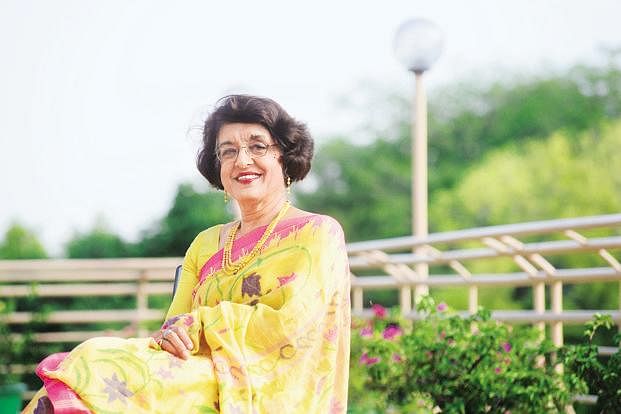
Based on friendship, trust, and mutual benefit, cooperation with Bangladesh holds pride of place in Prime Minister Modi’s ‘neighbourhood first’ foreign policy There are several reasons why, for India, the relationship with Bangladesh is among its most important external relationships. Our intertwined geography and our shared civilizational heritage have been fortified by shared value systems. Even after the partition of 1947, these bonds between East Pakistan and India persisted, unlike what has happened with West Pakistan.
Above all, the friendship and trust between Bangladesh and India is the legacy of Bangabandhu Sheikh Mujibur Rahman, under whose iconic, charismatic and courageous leadership the people of Bangladesh fought and won the Liberation War of 1971. India spared no effort and fulfilled every promise in ensuring this victory, keeping in mind at all times the interests and concerns of the people of Bangladesh. The coordinated cooperation between our two nations in 1971 can never be forgotten. India thanks Prime Minister Sheikh Hasina for reintroducing the correct perspective on the 1971 War of Liberation, and so graciously honouring individual Indian soldiers and others who contributed to the emergence of independent Bangladesh.
The principles of democracy, secularism, nationalism and socialism enshrined in the 1972 Constitution of Bangladesh have been Bangabandhu’s greatest legacy. Prime Minister Sheikh Hasina has shown her deep commitment to defending these principles, and through this, preserving and strengthening her father’s legacy, even as Bangladesh, India and the world celebrate Mujib Borsho, the birth centenary of Sheikh Mujib. Through our own constitution, India, too, adheres to the principles of democracy, secularism and socialism, underlining another strong bond of shared values and precepts between our two countries.
Today, bilateral Bangladesh-India relations are at an all-time high, both in range and intensity, with unprecedented levels of success. Sharing an excellent rapport, Prime Minister Sheikh Hasina and Prime Minister Narendra Modi have imparted fresh dynamism to our cooperation through the focus on speedy implementation of every decision, combined with the outreach to regional and sub-regional cooperation, through BIMSTEC, as well as through connectivity projects involving Bangladesh, Bhutan, India and Nepal.
Bangladesh currently imports 1160 MW (megawatts) of power from India. This is in addition to the 1320 MW thermal power plant being built in Rampal under Bangladesh India collaboration. In the energy sector, India has started supplying gas oil (diesel) to the northern districts of Bangladesh, currently by road, pending the completion of the pipeline under construction by India from Siliguri to Parbatipur.
Between 2014 and 2019, Bangladesh’s exports to India have almost doubled, crossing the landmark US $ 1 billion figure in 2018-19. Bangladesh enjoys full duty-free, quota free access to the Indian market, with the exception of 25 tariff lines covering tobacco and alcohol. Significantly, with the ongoing implementation of major connectivity projects by road, rail and waterways, where Bangladeshi companies are providing the logistics, Bangladesh’s exports of services to India will soon rise sharply. This will further reduce the trade imbalance between Bangladesh and India.
It is noteworthy that many Indian exports to Bangladesh are intermediates (cotton and man-made yarn and fabric, textile machinery), that are vital inputs for Bangladesh’s highly successful global exports of ready-made garments.
Over the last eighteen months, the exchange of bilateral visits between Bangladesh and India has been intense. These have included visits to New Delhi by the President of Bangladesh (May 2019), by Prime Minister Sheikh Hasina (October 2019 to Delhi and November 2019 to Kolkata), and by the Foreign Minister of Bangladesh (February 2019). From India, there have been visits to Dhaka by the External Affairs Minister (August 2019) and the Foreign Secretary of India (March and August 2020).
Prime Minister Modi’s visit to Dhaka in March 2020for the Mujib Borsho celebrations could not take place due to the coronavirus pandemic. In addition, there have been exchanges of several other Ministerial and senior officials’ visits in 2019, leading to the signing of 10 MOUs/ Agreements on cooperation in diverse sectors, including nuclear science, space and information technology.
In March and October 2019, the Prime Ministers of Bangladesh and India jointly inaugurated, through video conferencing, several completed bilateral development projects (under the Indian credit-line), including establishment of 36 community clinics in five districts of Bangladesh, establishment of 11 water treatment plants across Bangladesh; and supply to Bangladesh of 500 trucks, 300 double-decker buses, and 200 air-conditioned buses. More recently, in July 2020, ten broad gauge railway locomotives were given as a grant to Bangladesh.
Both Bangladesh and India are determined to bring down to zero the incidence of border killings
People-to-people interaction and friendship is the strength and bulwark of our bilateral relationship.
Given the high-priority India attaches to this intense ongoing cooperation, Bangladesh was the natural choice for the first high-level post-pandemic visit. Foreign Secretary Harsh Shringla was in Dhaka on 19-20 August. He called on Prime Minister Sheikh Hasina, conveying the message of goodwill and continued cooperation from Prime Minister Narendra Modi.
India has supported Bangladesh in every way during the Covid pandemic, with supply of testing kits, hydroxychloroquine tablets, surgical masks, gloves, and head covers, together with conducting online capacity building courses for medical professionals from Bangladesh. And now, a leading pharmaceutical firm in Bangladesh has signed an agreement with the leading vaccine manufacturer in India to ensure adequate supply to Bangladesh of the vaccine against Covid-19, once the on-going human trials are completed.
People-to-people interaction and friendship is the strength and bulwark of our bilateral relationship. India issues almost 16 lakh visas each year for Bangladesh nationals to travel to India, perhaps the largest number between any two countries anywhere in the world. India is their destination of choice for business, education, medical treatment, religious pilgrimage, and tourism. Talks are now on to create an air bubble to facilitate the resumption of travel that has been interrupted by the pandemic.
India is fully sensitive to the concerns of Bangladesh on all outstanding issues. I, for one, fully support the need to conclude and sign the agreement on Teesta river water-sharing as expeditiously as possible. Meanwhile, Bangladesh and India must step-up discussions on allied issues, including joint river basin management, augmentation of dry season water flows in the Teesta, crop management to minimize water-use during the dry season, and so on. These are uniquely bilateral issues, and should remain so.
In August 1972, when China vetoed Bangladesh’s application for UN membership, leading newspapers in Dhaka reported sources close to Sheikh Mujibur Rahman as saying that “China is eager to keep the subcontinent as a chessboard of power politics”
Both Bangladesh and India are determined to bring down to zero the incidence of border killings. Following discussions between our foreign secretaries in Dhaka on 19-20 August, the BGB (Bangladesh) and the BSF (India) will renew efforts on specific modalities to eliminate such tragic incidents. Perhaps, whenever such incidents do occur, BGB and BSF should work together to quickly bring out an agreed statement on what happened, so that speculative and misleading media coverage is minimised.
What has surprised me is that after Foreign Secretary Shringla’s visit, there has been a sudden spate of media coverage in Dhaka, casting a negative light on the visit, and on the entire Bangladesh-India relationship, while supporting stronger ties with China and Pakistan, at the expense of India. However, foreign relations are not a zero-sum game.
Of course, each sovereign nation is free to decide how it will develop its relations with other countries, taking into account all factors, be it financial dependency and increasing indebtedness, or lessons from history and possible future implications. In August 1972, when China vetoed Bangladesh’s application for membership of the United Nations, leading newspapers in Dhaka reported sources close to Sheikh Mujibur Rahman as saying that “China is eager to keep the subcontinent as a chessboard of power politics” (Daily Star, August 26 2020, back page).
The enduring factor that makes for stability in Bangladesh-India relations is widespread goodwill at the popular level based on national interest. Prime Minister Sheikh Hasina is a staunch nationalist, who holds the interests of Bangladesh close to her heart at all times, carrying forward the legacy of Bangabandhu Sheikh Mujibur Rahman.
Veena Sikri , former High Commissioner of India to Bangladesh, is Convener, South Asia Women’s Network (SWAN) and Vice Chairperson, South Asia Foundation (SAF-India)










It’s a pure propaganda from an Indian diplomat who is concerned about Bangladesh’s new tilt towards China. Such is quite evident from Veena’s statement in the last paragraph If India is really mindful of Bangladesh, let her prove such good intent by walking the talk. Sadly, India has proven to be a hostile and hegemonic power. Such dada-babu attitude is not conducive to fostering good relationship with a smaller and less powerful neighbor like Bangladesh that has a rich tradition of standing for her rights.